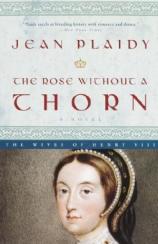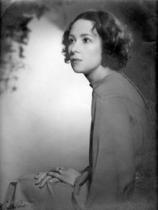Reading Group Guide
Discussion Questions
The Rose Without a Thorn: A Novel

1. Who is the scribe? What is the significance of these bookends to the novel? Why does Katherine want her tale put down in writing?
2. In her statement, "The road is laid before us and we must pass along it, and, through ourselves, come to salvation --- or damnation," Katherine seems to suggest that our fate is decided for us, but that our reactions to that fate determine our ultimate reward. Where in the novel do you see a tension between fate and personal determination? How much free will does Katherine actually have in her situation? Does she exercise it?
3. What series of events does Katherine's mother's death set in motion that leads to Katherine being moved to Horsham? If her mother had stayed alive, what do you think would have happened to Katherine?
4. When Katherine joins the household at Horsham, she becomes the butt of constant jokes about the Howard family, and the fact that the Duchess puts on airs about the family name. Why doesn't Katherine mind their teasing? Why does she put up with her manipulative, sometimes even cruel new friends, like Isabel? Is she desperate to fit in, or is she just an idiot?
5. Why do things begin to unravel for Katherine's cousin Anne? What event brings on her miscarriage? How does Henry manage to drum up an adultery charge against her? What immediate effect do these events have on the Howard family? Why does Uncle Norfolk join those who condemn Anne?
6. Katherine describes her aunt this way: "The Duchess was a lady who would make herself believe what she wanted to --- particularly if the alternative was too unpleasant to contemplate." Which other characters in the novel use this coping mechanism? Does it serve them well or ill?
7. Katherine describes gloom in the Howard house after Henry announces his betrothal to Anne of Cleves: "Anne of Cleves, with her Protestant upbringing, was certainly not what the Howards were looking for." How much does Katherine understand of the religious/political nuances and implications surrounding Henry's decisions? How does Plaidy convey these to her readers even when her narrator doesn't understand them?
8. What is Thomas Cromwell's dire mistake regarding Anne of Cleves, and what is the reaction of his colleagues? What stand does Katherine take in this issue? What role does the Duke of Norfolk play in Cromwell's demise? Does Katherine absorb any new information after watching this unfold?
9. By their third flirtatious visit, Katherine describes herself as "completely disarmed" by the king's playfulness. Even when he bruises her, she says, "I giggled inwardly, asking myself if it were an honour to be bruised by the King." Is she truly clueless as to what's going on? What is her first hint that Henry is volatile, even with her?
10. What does Katherine call the "one sphere in which I was not ignorant." Is it useful to her?
11. Why does Joan Bulmer's letter spook Katherine? What does Joan want? How does Katherine talk herself out of seeing the letter as a warning signal?
12. Who sends word to King Francis of France about the mess Katherine finds herself in? Why? What would have been different if this step had not been taken?
13. Thomas Cranmer, Archbishop of Canterbury, visits Katherine in the Tower and offers her a possible stay of execution. What are the terms of his offer? Why does she refuse this opportunity? If she had accepted Cranmer's offer, do you think Henry would have taken her back? Why or why not?
14. After the Duchess discovers Katherine rolling on the floor with Derham, Katherine stoically observes, "People often vented their rage on those who were the victims of their neglect because they were in truth blaming themselves." In what ways does Katherine suspect her aunt blames herself? Where else in the novel do you recognize the theme of blaming the victim?
15. How does public opinion change as a result of Katherine's death?
16. Concerning Catherine Parr, Henry's sixth wife, the scribe closes with: "It was not a case of choosing, but being chosen." Is it fair to call this the theme of the novel?
The Rose Without a Thorn: A Novel
- Publication Date: June 24, 2003
- Paperback: 288 pages
- Publisher: Broadway
- ISBN-10: 0609810170
- ISBN-13: 9780609810170








